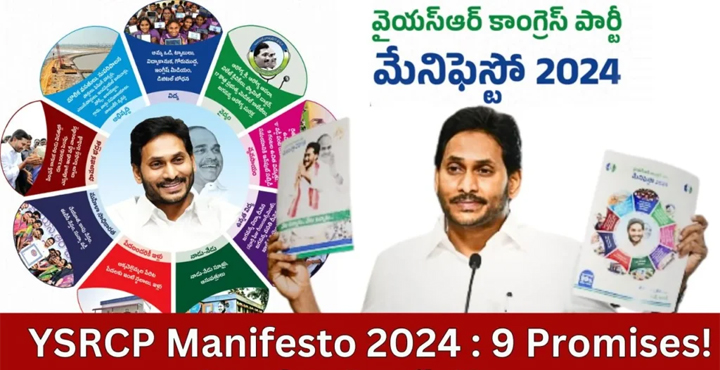
The YSR Congress’s manifesto for the upcoming elections has stirred quite a controversy, leaving many candidates in dismay. Despite facing strong anti-incumbency sentiments, the party’s approach of relying solely on freebies has disappointed those hoping for innovative schemes to secure their political future.
Candidates braved the scorching summer heat, expecting substantial improvements in existing schemes or promising new ones. However, much to their disappointment, the manifesto largely maintains the status quo. While there are minor adjustments in some schemes, they seem more like superficial changes rather than meaningful improvements.
The party’s cadre and social media teams are striving to defend the manifesto’s shortcomings by emphasizing Jagan Mohan Reddy’s commitment to fulfilling promises. They argue that while certain pledges like debt waiver could have tilted the scales in Jagan’s favor, he chose not to compromise his integrity by making unrealistic assurances. However, this narrative fails to resonate with the public, as there is a growing sense of dissatisfaction regarding the party’s delivery on previous promises.
Jagan’s hunger for power is undeniable, evident in his aggressive pursuit of political vendettas. Losing power is not an option for him, given the risks associated with his confrontational style of politics. However, despite his relentless efforts to maintain a grip on power, there is an underlying sense of disappointment among the electorate regarding the fulfillment of freebies promised by the party.
The manifesto’s claim of achieving 99% fulfillment is met with skepticism, considering the backtracking on key promises such as complete prohibition and cancellation of CPS. Moreover, critical projects under the Navaratnalu scheme have failed to meet deadlines, casting doubts on the government’s efficacy in delivering on its commitments.
Promises like the gradual increase in pensions and the partial implementation of the Amma Vodi scheme further erode the party’s credibility. Deductions in installment payments and subpar execution of housing schemes only add to the disillusionment among the electorate.
The decision to reduce the Rythu Bharosa promise by including funds from the Central Government reflects a pragmatic approach but may not resonate well with voters expecting more substantial support from the state government.
Despite intelligence reports warning against introducing new schemes, the party’s reluctance to innovate and address pressing issues has dampened the morale of its cadre and leaders. In contrast, rival parties like Chandrababu’s TDP appear to offer more comprehensive and appealing manifestos.
As the complete manifesto unfolds, further scrutiny and criticism are anticipated, exacerbating the challenges faced by the YSR Congress. In the face of mounting dissatisfaction and superior alternatives offered by competitors, the party must reassess its strategy to regain public trust and secure electoral success.













